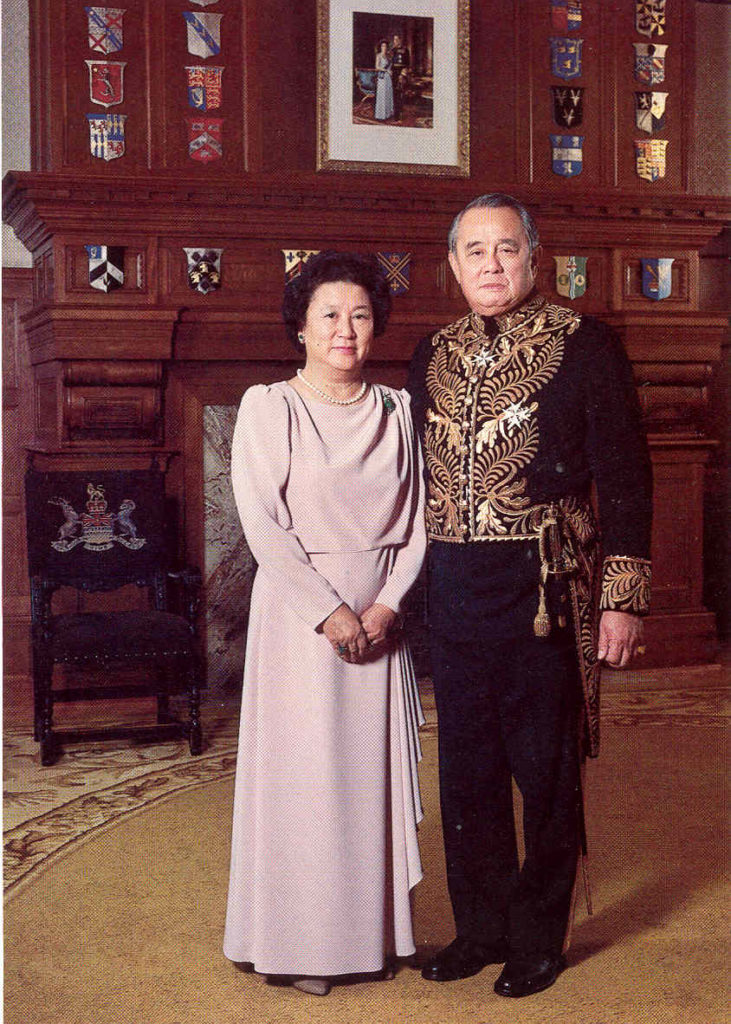The month of May is devoted to celebrating the vast and unique contributions of the many diverse Asian-Canadian communities in British Columbia’s history. Asian Heritage Month is an opportunity to recognize and explore the accomplishments, artistry, traditions and culture of those who helped build the province that would become British Columbia, and all members of Asian-Canadian communities who have called BC home since.
In 1988, the Honourable David Lam became the 25th Lieutenant Governor of British Columbia. Not only was he the first Chinese-Canadian Lieutenant Governor in the history of the province, he was the first Asian-Canadian Lieutenant Governor in Canada. Dr. Lam was familiar with the unique challenges faced by those who choose to leave their homelands for a new life— he immigrated to Canada from Hong Kong in the 1960s. While he saw great success as a real estate entrepreneur in Vancouver, he was also devoted to philanthropical endeavours, including the founding of the Floribunda Philanthropic Society, the David & Dorothy Lam Foundation, and the beloved Canadian International Dragon Boat Festival. In 1991, as Lieutenant Governor, Dr. Lam initiated the Garden Volunteer Program at Government House to enhance the existing gardens, create new gardens, and improve the maintenance of the grounds for public use and enjoyment. Dr. Lam’s plans included the involvement of volunteers, the Friends of the Government House Gardens Society.
The legacy of Dr. Lam endures alongside the cultural influences of many other distinct Asian communities in British Columbia. From Sikh celebrations of Vaisakhi, the largest outside of India, to the footprint of Chinatowns throughout the province heralding today’s vibrant Chinese community, to the Powell Street Festival cultivating Japanese-Canadian arts and culture—these are but a few examples of the heritage and traditions that have taken root to find their place in the multicultural tapestry of British Columbia.
The history of Asian-Canadians in British Columbia has not come without the challenges of racism, discrimination and displacement: the head tax placed on Chinese immigrants, the incident of the Komagata Maru and the internment camps where Japanese-Canadians were sent in World War II are all dark moments in the history of the province. While today we celebrate the contributions of these communities, it is vital that we continue to acknowledge this past. Most recently, with the spread of COVID-19, came a significant rise of anti-Asian violence. This unacceptable truth means there is still much work to do, and to learn these histories, to celebrate achievements and recognize injustices, is of the utmost importance.
I encourage you to take part in the month’s events and activities honouring Asian heritage in your community! Join me in exploring the history of Asian communities in BC and learning how the province that would become British Columbia was formed with the influence of Asian cultures and traditions. Follow along and share your own reflections with me on Twitter, Facebook or Instagram, and here on the LG Blog.


